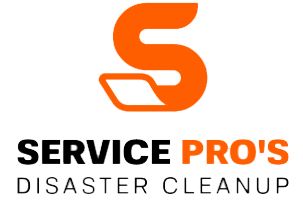In the calm after a storm, we’re often left facing a tempest of paperwork and uncertainty. Water damage, whether from a burst pipe, a leaky roof, or a natural disaster, can be a homeowner’s worst nightmare. It’s not just the physical mess and damage to our treasured possessions that’s distressing – it’s the complex, often bewildering process of filing an insurance claim that can really cause a headache.
We’re here to guide you through this process, to help you understand the ins and outs of your insurance coverage, how to document the damage, report it promptly, negotiate with adjusters, and even dispute unfair claim denials. Stick with us, and we’ll turn this daunting task into a manageable journey, giving you the confidence and knowledge to navigate the process successfully.
Understanding Insurance Coverage For Flooding Disasters
Let’s dive into understanding your insurance coverage, a crucial step in effectively handling water damage insurance claims. It’s essential to know what’s covered in your policy and what’s not. This knowledge will guide us in dealing with unexpected water damage, making it less stressful to navigate the claims process.
First off, we need to comprehend the standard homeowners insurance policy. It typically covers damage caused by sudden or accidental water incidents like burst pipes, or water damage from a firefighting effort. However, it doesn’t cover damage due to lack of home maintenance or wear and tear. So, if our roof leaks because it’s old or poorly maintained, insurance probably won’t cover the damage. Similarly, damage from unresolved leaks that we’ve ignored may also be exempted.
Next, we must understand that standard homeowners insurance doesn’t cover water damage from floods. We’d need a separate flood insurance policy, usually available through the National Flood Insurance Program. It’s important to know our home’s flood risk and decide if we need this additional coverage.
Lastly, let’s be aware that our insurance company will determine whether the water damage is due to a covered peril or not. We’ve to provide as much detail as possible about what caused the water damage, so they can make an informed decision.
Documenting Water Damage Thoroughly
After understanding your insurance coverage, it’s crucial we immediately start documenting any water damage thoroughly to support our claim effectively. We shouldn’t delay this step, as this documentation serves as the foundation of our case, a crucial element that the insurance company will scrutinize.
Firstly, we’ll need to take detailed photos and videos of the damage. Let’s ensure we capture the breadth and depth of the water damage from various angles. It’s important we don’t make any repairs or remove water-damaged items before documenting them. This visible evidence will help us paint a clear picture for the insurance adjuster of what happened and the extent of the damage.
Next, we should list all damaged items, describing each one’s condition, age, and estimated replacement cost. We’ll keep any receipts we’ve for these items, as they’re further proof of value. Additionally, it’s advisable we maintain a log of all conversations with the insurance company, noting dates, times, and the points discussed.
We mustn’t forget to document any expenses incurred due to the water damage. This could include costs for cleanup efforts, temporary housing, or meals eaten out because the kitchen was unusable. All these details will build a strong case for our claim.
Lastly, let’s remember to keep copies of all our documentation. If any originals are lost or damaged, we’ll still have backup evidence to support our case.
Reporting Water Damage Promptly
Reporting water damage to our insurance company promptly is the next crucial step we need to take. It’s not just about getting a jump on repairs; it’s also about ensuring our claim’s validity. Most insurance companies have strict timelines for reporting damage. If we don’t report the damage promptly, we may risk our claim being denied.
When we call our insurance company, we’ll need to provide as much detail as possible about the incident. This includes the time and date of the incident, the cause of the water damage, the extent of the damage, and any steps we’ve taken to prevent further damage. It’s also a good idea to have our policy number handy to speed up the process.
After we’ve reported the damage, our insurance company will assign a claims adjuster to evaluate the damage. This person will visit our home, inspect the damage, and determine the cost of repairs. It’s important that we’re present during this visit to answer any questions the adjuster may have. We should also have our documentation ready to show the adjuster.
It’s also crucial to know that we don’t have to accept the insurance adjuster’s estimate. If we feel it’s too low, we can hire a public adjuster to get a second opinion. This can help ensure that we get the compensation we deserve.
Negotiating With Insurance Adjusters
Navigating negotiations with insurance adjusters can often be a complex process, but it’s a critical step in ensuring we receive a fair settlement for our water damage claim. Adjusters are trained to minimize claim payouts, so it’s essential we’re prepared to discuss our claim thoroughly and in detail.
Firstly, we must be well-versed in the specifics of our insurance policy. It’s important we understand our coverage limits, deductibles, and policy exclusions. This knowledge gives us the power to counter any inaccuracies or misinterpretations the adjuster may present. We should also be ready to provide evidence supporting our claim, including photos, receipts, and documented estimates from professional repair services.
Next, we must remember that negotiation is a process. We shouldn’t feel pressured to accept the first offer that’s presented. It’s completely within our rights to dispute it if we believe it’s unfair. We can request a detailed written explanation for any low estimates and consult with legal or insurance professionals if necessary.
Lastly, it’s crucial to maintain open and regular communication with the adjuster. We should always respond promptly to their inquiries and requests. It’s also beneficial to document all interactions and decisions made during this process. This documentation can be crucial in the event of any disputes or misunderstandings.
Disputing Unfair Claim Denials
Despite our best efforts in negotiating with insurance adjusters, there may be instances when our water damage claim is unjustly denied. It’s crucial not to let this discourage us. Instead, we should focus on disputing the denial appropriately.
You must understand why the claim was denied. The insurance company should provide a detailed explanation of their decision. If we believe the denial is unfair, we can begin the appeals process. We’ll need to gather all relevant documentation, including the initial claim, the denial letter, and any evidence supporting our claim. Remember, thorough documentation is key as it strengthens our case.
Next, we’ll need to draft a letter disputing the claim denial. This letter should clearly state our case, referring to the policy terms and conditions, and our evidence. It’s essential to remain professional and concise in our communication.
If our dispute doesn’t result in a satisfactory resolution, we aren’t out of options. We can then take our case to the state’s insurance regulator or hire a lawyer specializing in insurance claims. Engaging a lawyer should be our last resort due to the potential cost, but it can be highly effective.
The process of disputing an unfair claim denial can be daunting, but it’s crucial to stand up for our rights. We’ve paid our premiums and deserve fair treatment. By understanding the process and preparing thoroughly, we can increase our chances of a successful outcome in our dispute.
It’s all about not giving up, and pushing for what we’re rightfully owed.
Frequently Asked Questions
What Are Some Preventative Measures to Avoid Water Damage in My Property?
We’d recommend regular property inspections, ensuring good drainage, installing water leak detectors, and keeping up with maintenance. It’s also crucial to check appliances and plumbing regularly to avoid potential water damage issues.
How Can I Find a Reliable Contractor for Water Damage Repairs?
We’d suggest asking for recommendations, checking online reviews, and interviewing potential contractors. Ensure they’re licensed, insured, and experienced in water damage repairs. We can’t stress enough about the importance of a trustworthy contractor.
Can I Claim Water Damage if the Cause Was a Natural Disaster Like a Flood or Hurricane?
We’re asked if water damage from natural disasters like floods or hurricanes can be claimed. Yes, we can claim such damages, but it’s subject to our insurance policy’s terms and the type of coverage we’ve selected.
How Does Filing a Water Damage Claim Affect My Insurance Premium?
We’ve often noticed that filing a water damage claim can potentially increase your insurance premium. It’s because insurers might see you as a higher risk, but it really depends on your policy and insurer.
Are There Any Specific Insurance Companies That Are Known for Handling Water Damage Claims More Favorably?
We can’t single out specific insurance companies as more favorable for water damage claims. It’s more about your policy details and how you’ve maintained your home. We’d advise comparing companies and reading reviews.


